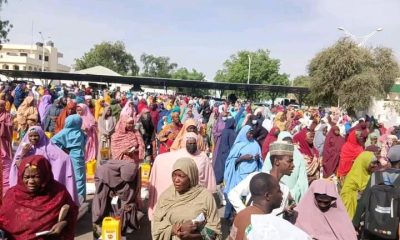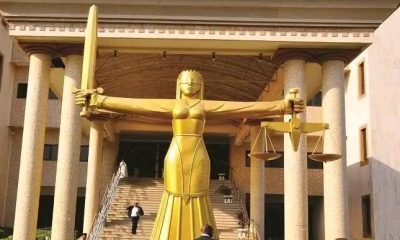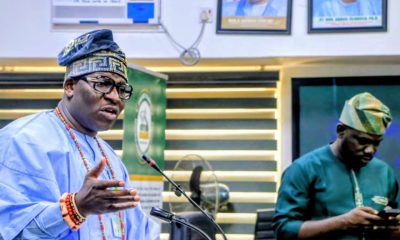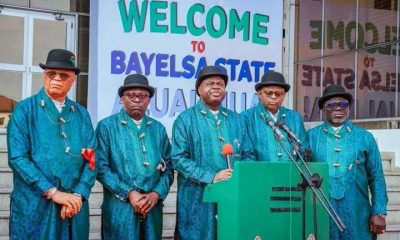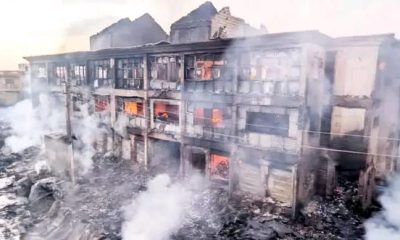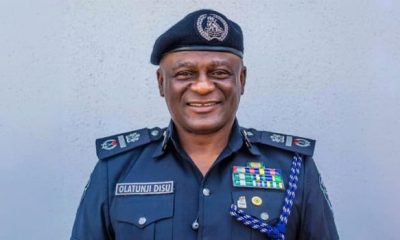Opinion
From Casual Staff to International Reporter: The Journey of Adamu Aliyu Ngulde
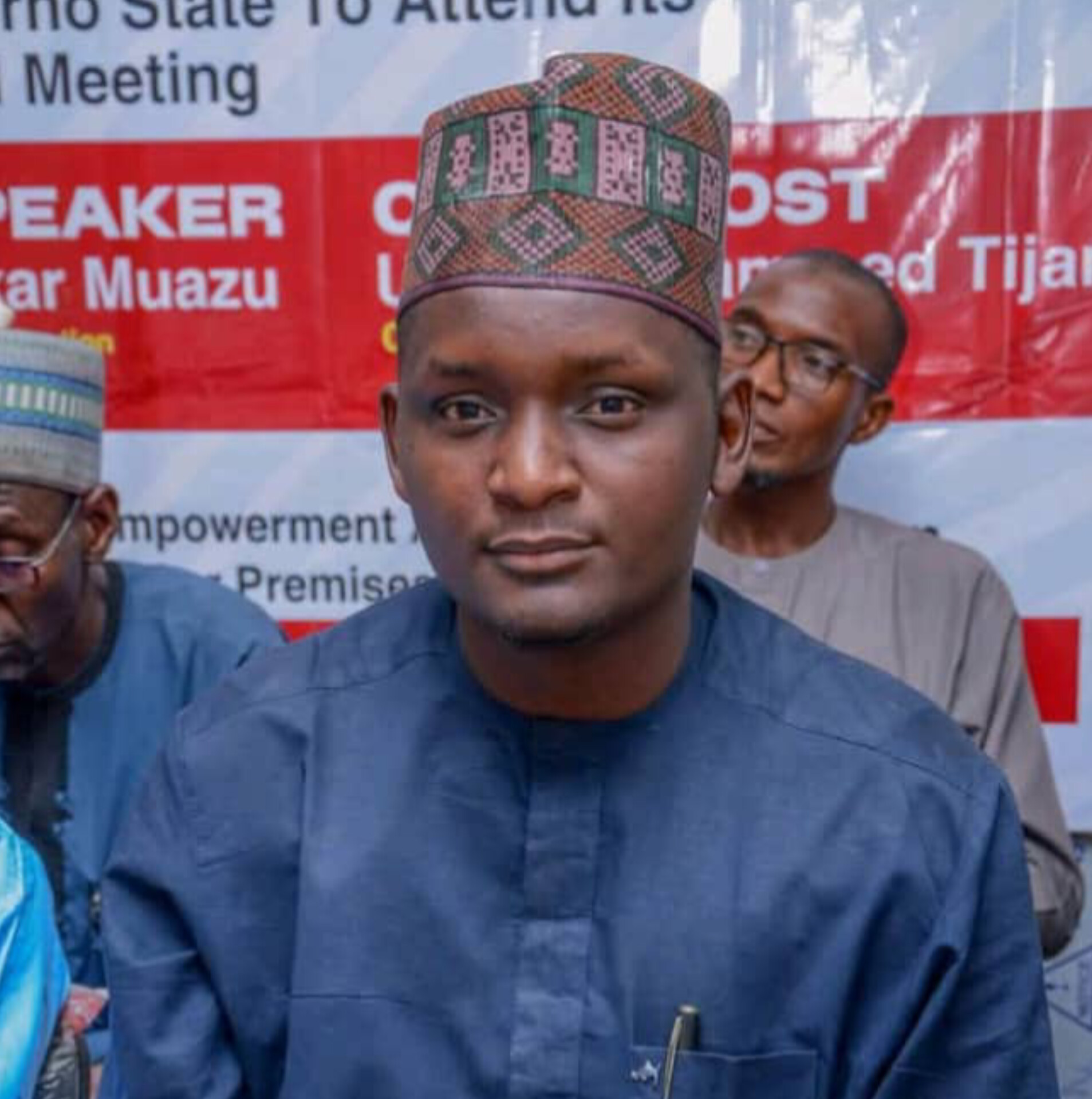
MAIDUGURI, Nigeria — On a quiet morning in 2015, a young trainee walked into the studio halls of Yobe Broadcasting Corporation in Damaturu. He carried a slim folder — a letter from the Industrial Training Fund authorizing his placement — but no real sense of what awaited him inside.
The studio was dimly lit, its walls lined with aging soundproof panels, its control room buzzing with the soft hum of machines. For Adamu Aliyu Ngulde, then just a student on attachment, journalism was still something distant, the province of seasoned broadcasters whose voices filled radios across the northeast. Yet that small step into YBC would become the first in a journey that would take him from unpaid work as a casual staffer to reporting for some of the world’s most respected outlets.
“I didn’t even know what a fixer was at the time,” Ngulde recalled. “I only knew I wanted to learn how news was made.”
The First Classroom
At YBC, Ngulde learned the basics — how to hold a microphone, label tapes, and sit silently as producers scrambled to balance bulletins with breaking news. He was not an employee, only an Industrial Training Fund student, but he quickly realized that the newsroom was as much a classroom as any lecture hall.
“It was my first exposure to media,” he said. “YBC showed me that news is not just information. It’s power.”
When his training ended, Ngulde did not turn away from journalism. Instead, he followed his instincts to Maiduguri, the capital of Borno State, where the insurgency was fast reshaping daily life.
Life as a Casual Staffer
At Borno Radio Television (BRTV), Ngulde joined as a casual staff member. The pay was modest, the conditions insecure, but the lessons were priceless. He quickly came to understand that broadcasting in Borno was not just about entertainment or information. It was about survival.
As Boko Haram’s insurgency spread across the region, the station became a lifeline. It relayed government safety updates, announced relief efforts, and warned residents about areas under threat.
“Being at BRTV during that time was eye-opening,” he said. “The conflict was no longer distant. It was right here in our neighborhoods, affecting our families. We had a duty to inform.”
Becoming a Fixer
By the late 2019s, Maiduguri had drawn the world’s gaze. Foreign correspondents flew in to cover the insurgency, the sprawling displacement camps, and the grinding humanitarian crisis. But reporting in northeast Nigeria required more than parachuting in with a notebook. It demanded someone who knew the terrain — the languages, the customs, the dangers.
Ngulde, with his newsroom grounding and community ties, quickly became indispensable. He arranged interviews in displacement camps, translated in Hausa and Kanuri, secured access to aid workers, and helped reporters navigate the labyrinth of checkpoints and military restrictions.
“Fixing taught me that journalism is not only about headlines,” he explained. “It’s about trust — trust from the community and from the reporter you are guiding.”
But fixing was never the end goal. Soon Ngulde was writing his own stories, shifting from the background to the byline.
A Reporter in His Own Right
His reporting focused not on strategy or politics but on the human faces of the conflict. He wrote about mothers raising children in tents, traders struggling to rebuild shattered businesses, and families living at the intersection of hunger and violence.
Over the years, his collaborations and contributions reached far beyond Maiduguri. He reported for BBC Hausa, contributed to TRT Africa Hausa and AFP, and worked with Radio Dandal Kura International, Al Ansar Radio Maiduguri, and Radio Anfani in Diffa, Niger Republic.
“People in Gamboru, Damboa, or Diffa might think their stories are too small for the world,” he said. “But when you put it on BBC or TRT, it reminds them their struggles matter — that someone is listening.”
A Mission, Not Just a Career
Ngulde does not describe journalism as a profession. He describes it as a mission, one rooted in the struggles of his community.
“Every time I sit with an IDP, or speak to a widow, or listen to a trader who lost everything, I remember why I started,” he said. “This is more than a job. It’s a responsibility.”
He dreams of building a platform dedicated entirely to amplifying voices from conflict-affected communities — one that ensures the northeast’s stories remain on the global agenda.
Looking Forward
Today, Ngulde continues to work from Maiduguri, balancing his dual role as fixer and reporter. From his early days at YBC to his time at BRTV and his current collaborations with international outlets, his journey reflects the resilience of local journalism in Nigeria’s most fragile region.
“It all started in Damaturu,” he said with a quiet smile. “From there to BRTV, and now to the world. Every story I tell is a way of saying: we are here, and our voices matter.”
Adamu Aliyu Ngulde
Freelance Journalist – Maiduguri, Nigeria
WhatsApp: +234 803 213 5939
Email: adamungulde@gmail.com

